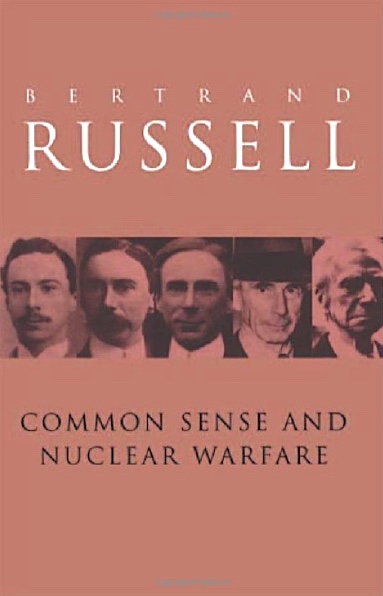
The first philosophy book I ever read was Bertrand Russell’s Common Sense and Nuclear Warfare. I was 13 years old.
Lord Russell’s writing made a huge impression on me. Though at the time I was reading mostly science and math books, the enterprise of looking at the pursuit of knowledge and wisdom from the broad perspective of a philosopher made deep roots in my sub-conscious and thus my first year of college I changed my major from chemistry to philosophy.
Even more central to the development of my world view and political priorities was the focus of this monumental book on the madness of arming ourselves with nuclear weapons. Here’s the abstract:
“Written at the height of the Cold War in 1959, Common Sense and Nuclear Warfare was published in an effort ‘to prevent the catastrophe which would result from a large scale H-bomb war’. Bertrand Russell’s staunch anti-war stance is made very clear in this highly controversial text, which outlines his sharp insights into the threat of nuclear conflict and what should be done to avoid it. Russell’s argument, that the only way to end the threat of nuclear war is to end war itself, is as relevant today as it was on first publication.”
Compared to today, those were innocent times. 1959 in my view was hardly the height of the Cold War, rather a way station for subsequent ramping up of tensions, which would first peak during the Cuban Missile Crisis at the end of 1962, discernably slow down with the resolution of that confrontation first part of 1963, then again continue to build until 1986 when Russia and the U.S. between them had nearly 65,000 nuclear bombs. Here’s a of the nuclear arms race between the two super-powers:
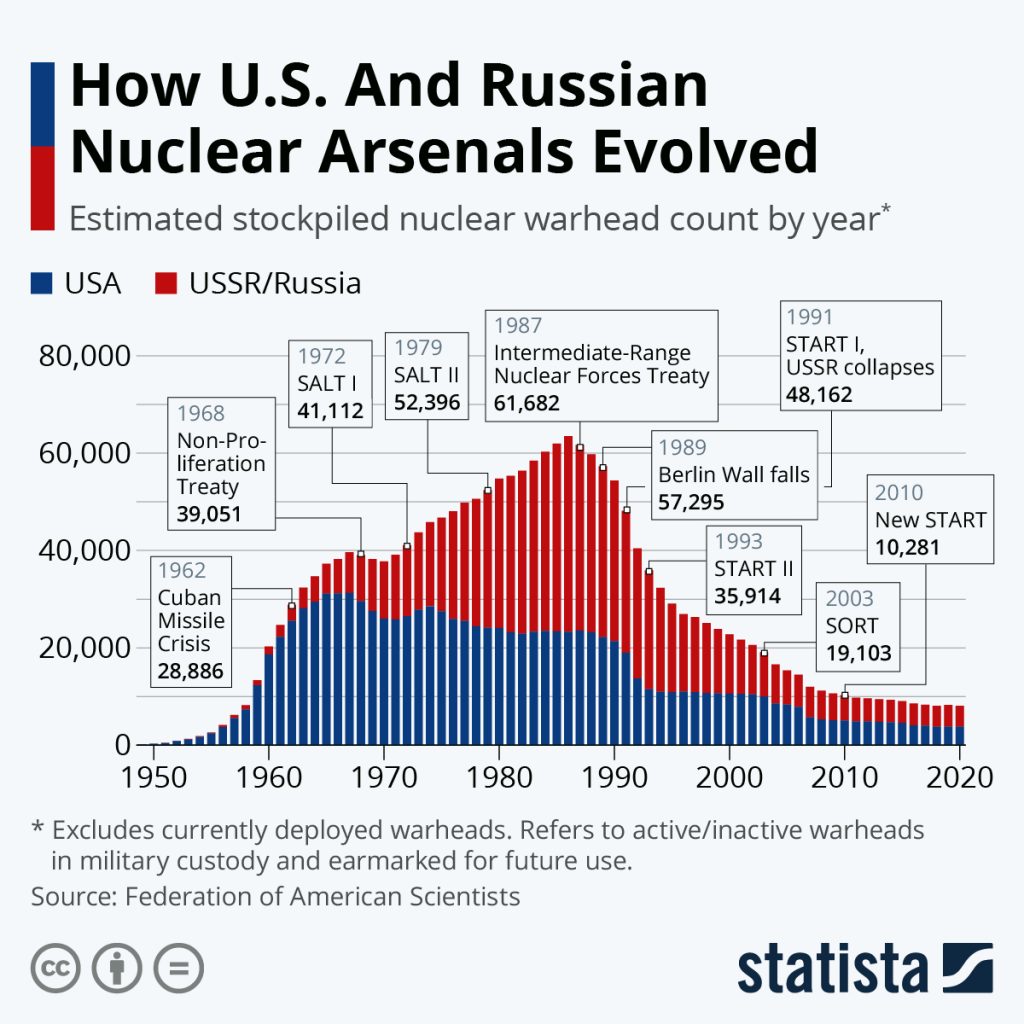
So in 1959, there were about 12,000 nuclear weapons available for mass annihilation. It is notable that most of those were in the U.S. arsenal, that of the U.S.S.R. less than 10% of the total. The U.S. continued its huge advantage until the U.S.S.R. finally reached parity twenty years later.
We now have active and immediately deployable about 8,000 nuclear weapons. If we count “inactivated” nukes which while not immediately deployable, could very quickly be put online, the total is slightly over 12,000, about the same as 1959. I say that the late 50s represented more innocent times for two reasons. First, back then as I just pointed out, the U.S. had almost all the nukes. The U.S.S.R. certainly wasn’t going to launch their 100+. It would have been almost instantaneous suicide. And while there was some talk a little later about destroying the “commies” both in China and the U.S.S.R. while we had the upper hand, sanity and some shred of moral conscience prevailed. The second reason we are less innocent now and in fact find ourselves living among the greatest threats to human survival in history is simple. Nukes are now in the hands of seven more nations. Three of them don’t inspire much confidence. North Korea, Pakistan, and India are considered “unstable” and U.S. policy toward them doesn’t exactly incentivize them to be less volatile. Likewise with China, which the U.S. openly antagonizes, insults, provokes, and officially has declared it will eventually have to go to war with to keep it from becoming a peer power. China has around 350 nuclear bombs, enough to destroy life on Earth 3 1/2 times over. India and Pakistan combined have about 300 nukes and have made no secret about their intent to use them if they end up in a major war with one another.
Have we learned anything from our flirtation with self-engineered extinction?
What really captured my attention and fired my imagination was Bertrand Russell’s open and highly public opposition. He wasn’t a cowering academic. And because there were still a few sane thought leaders in the world at that time who had high visibility and enormous public respect, Lord Russell was not alone in his passionate appeals for ending the scourge of war.
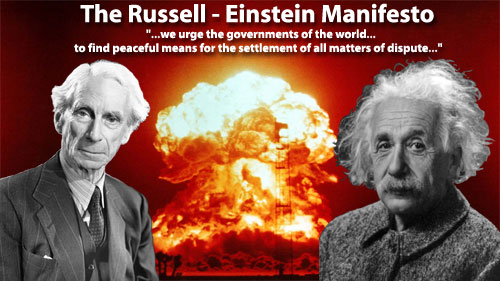
It’s tempting to say we haven’t learned anything in the past seven decades. But that’s a ridiculous conclusion. The truth is we knew back then and know now exactly what’s wrong and what needs to be done. We had celebrations across the globe recently when the 50th nation ratified the Treaty on the Prohibition of Nuclear Weapons and the U.N. “officially” declared nuclear weapons illegal. Any sane, decent human being knows nuclear weapons have no place in the world now or ever, and are a death sentence for the human species waiting for signature — which will be the first mushroom cloud over a major city anywhere on the planet. Of course, none of the nations who have nuclear weapons signed the treaty, there’s no way to enforce the treaty, and the nuclear nations will do whatever they damn please regardless.
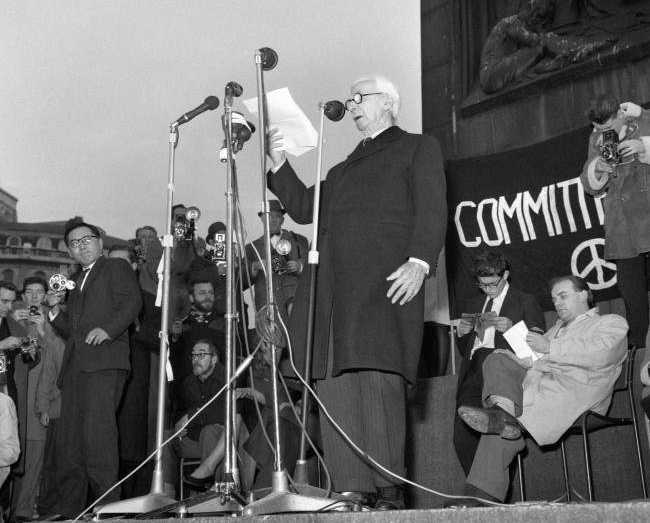
Ban The Bomb rally.
Which requires us to pause and inhale a deep breath . . . OF REALITY.
For seven decades I’ve been listening to the same painful moans and pitiful mantras. About a whole host of crises and problems: poverty, famine, war, terror, infanticide, genocide, war crimes, bioweapons, oppression, exploitation, on and on and on. And anyone my age will tell you the same. Not much has changed. The excuses are more compelling, the euphemisms are cleverer, the blame-game is Olympic Gold Medal material, the talking heads delivering the 24/7 stream of non-sequiturs prettier and more handsome. Yeah, there are incremental improvements here and there. But SEVENTY YEARS? We’ve put humans in space, transplanted organs, created self-driving cars, mass-produced a telephone-camera-computer-video conferencing computer that fits in the palm of a hand, yet 24,000 people still starve to death EVERY DAY. And we’re still snarling at one another like rabid hyenas threatening war and flirting with extinction. Come on!
The one lesson that obviously has not sunk in is that . . . ALL OF THESE STRUGGLES ARE ABOUT POWER: Those who have it and those who don’t. We can — as Lord Russell did and many good, well-meaning contemporary activists currently do — say all of the right things. But those fighting the good fight DON’T HAVE THE POWER. Those who subject the rest of the human race to indignities, oppression, the sickening homicidal wars, DO HAVE THE POWER and they are not listening. Not to us anyway. They listen to themselves, they serve themselves, their only loyalty is to an agenda that will keep them in power and secure their ability to use and abuse that power as they see fit.
THAT is the lesson we haven’t learned. We know that nuclear weapons are a death warrant. We know that they are a suicide pact. But there they are and there they will continue to sit, ready to unleash more death and destruction — and if not the annihilation of the human species at least the end of anything resembling civilization — than ever before imagined.
If we stop to think, to look at it objectively, the vast majority of people in the world want no part of this. It is a tiny, power-drunk, empire-obsessed, sociopathic few who hold us hostage to their psychotic fantasies.
Let’s break it down . . .
We know what needs to be done.
The lunatics are not now and will never listen to us.
We know how to change everything to make a better world.
The lunatics have their own plan and refuse to change.
The lunatics have the power.
We don’t have the power.
What should we do?
Isn’t it obvious?

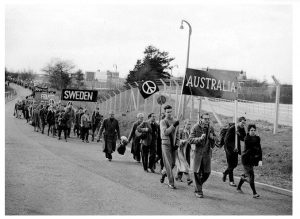

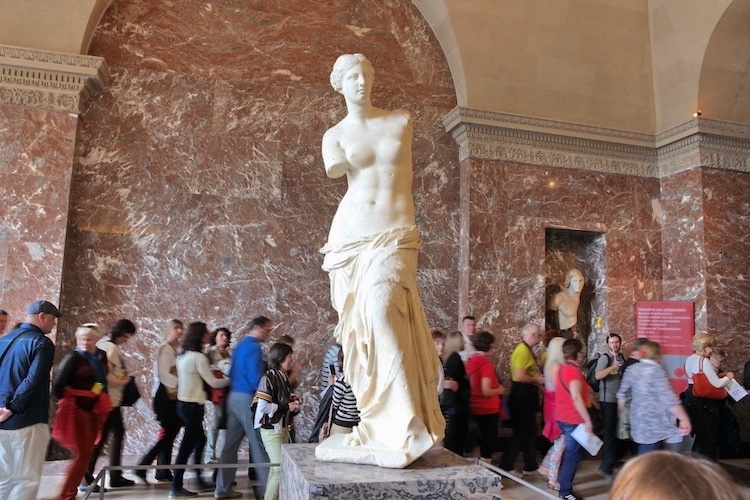

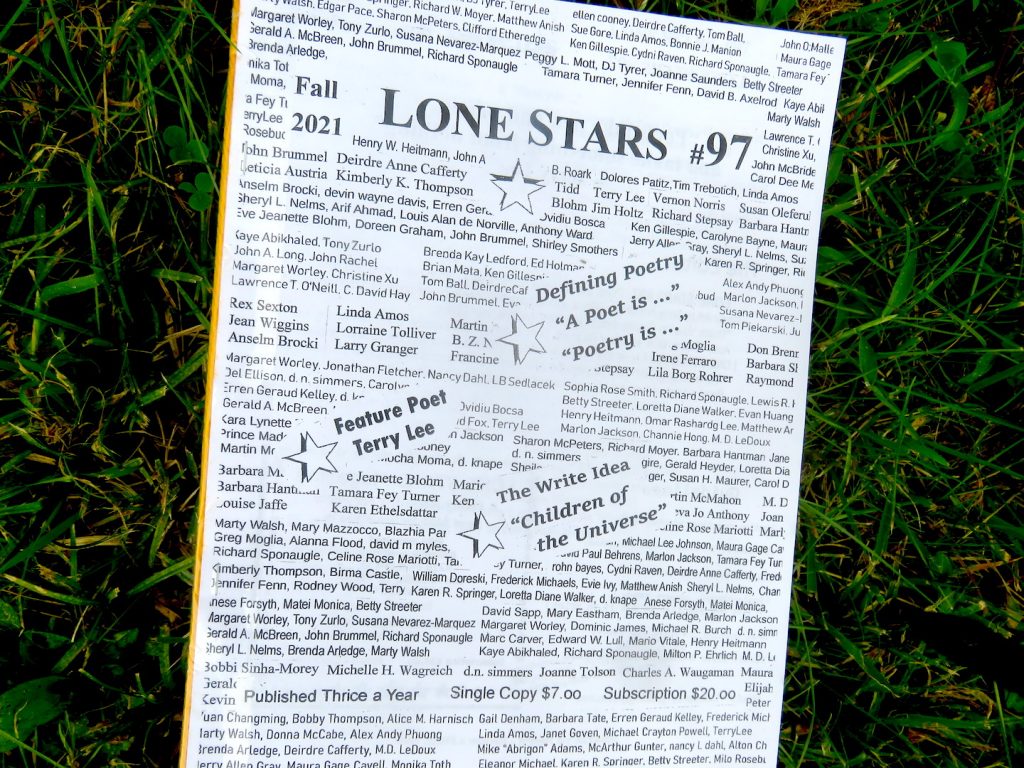

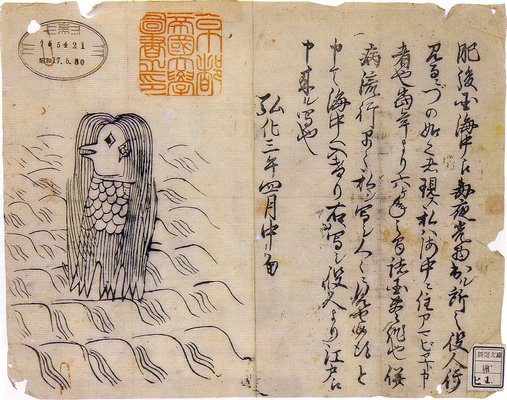
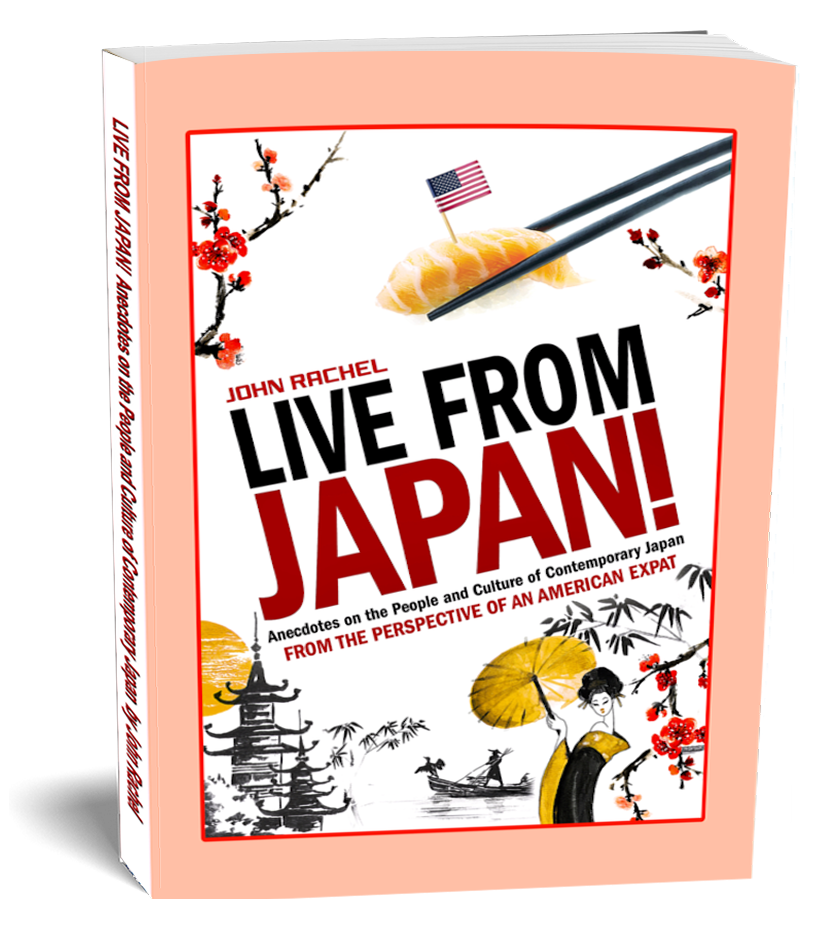



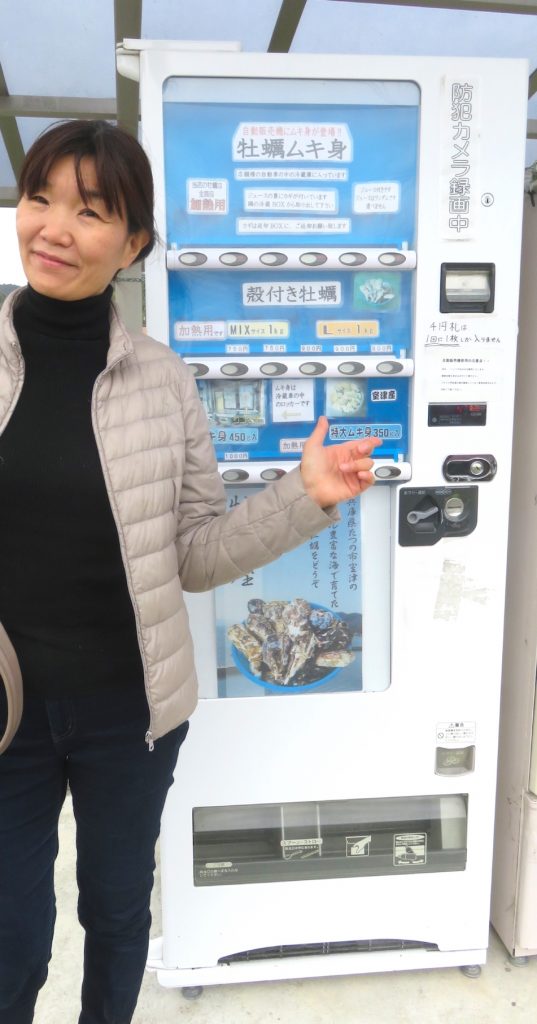
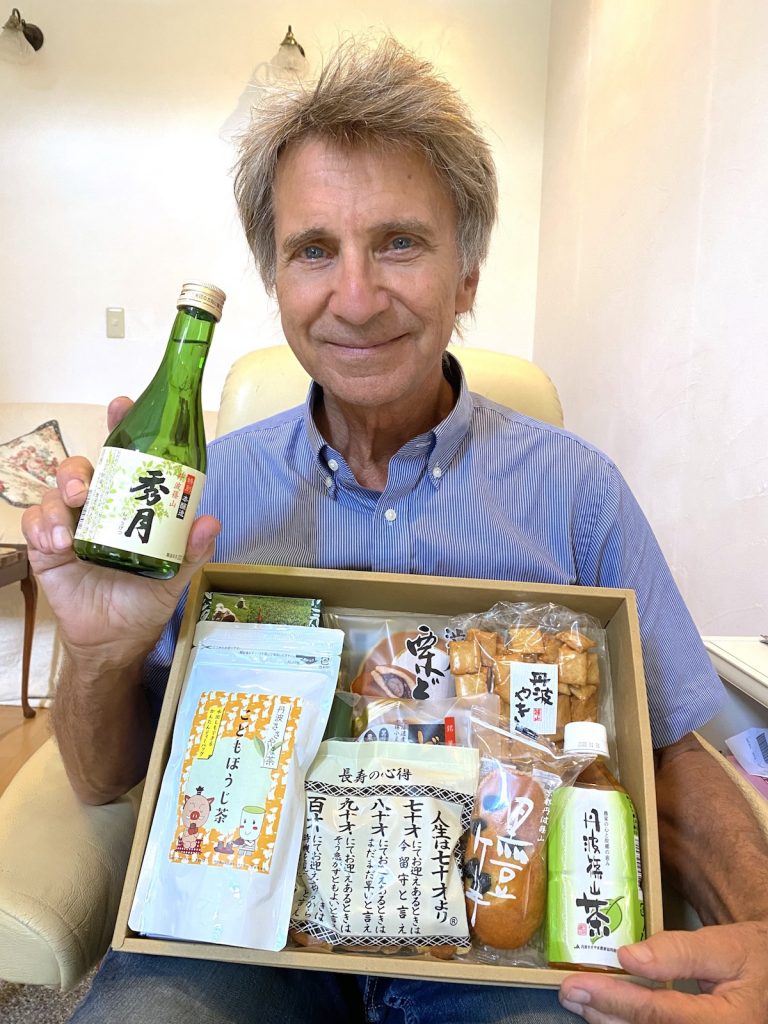
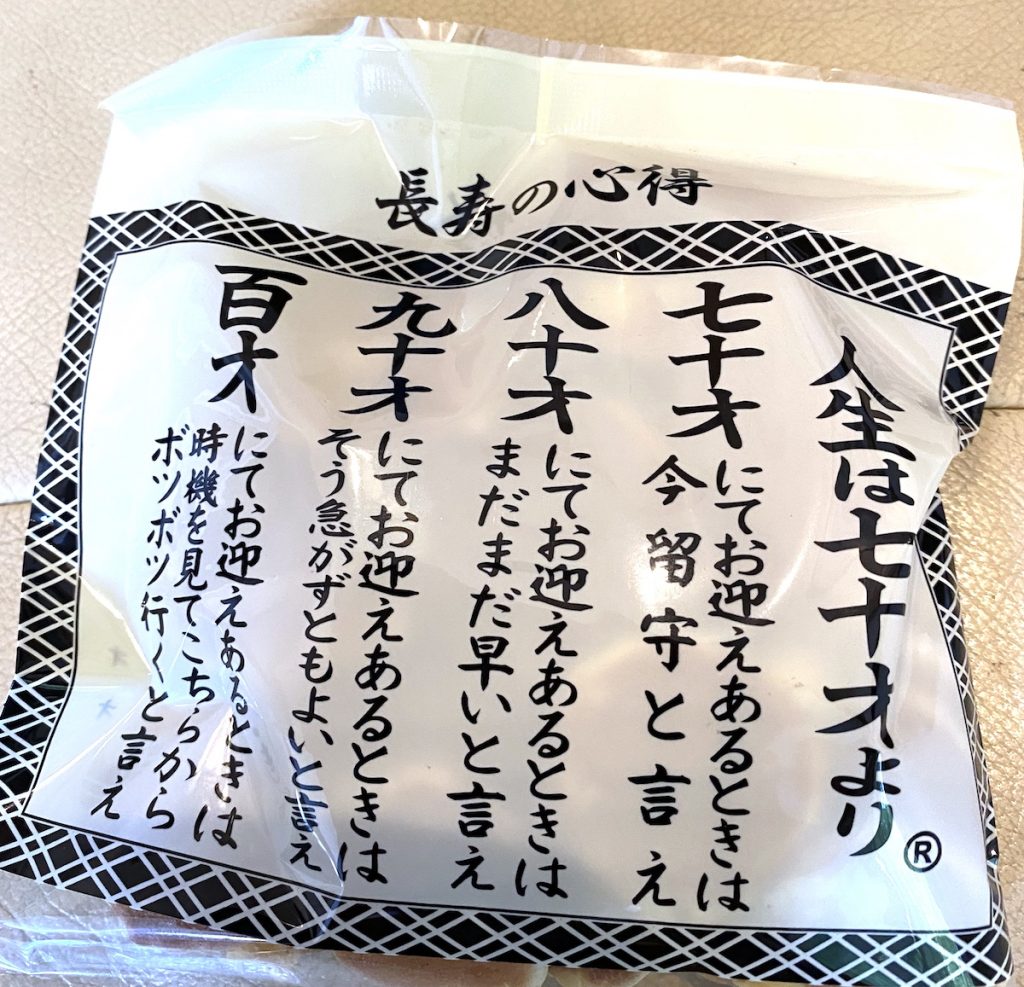
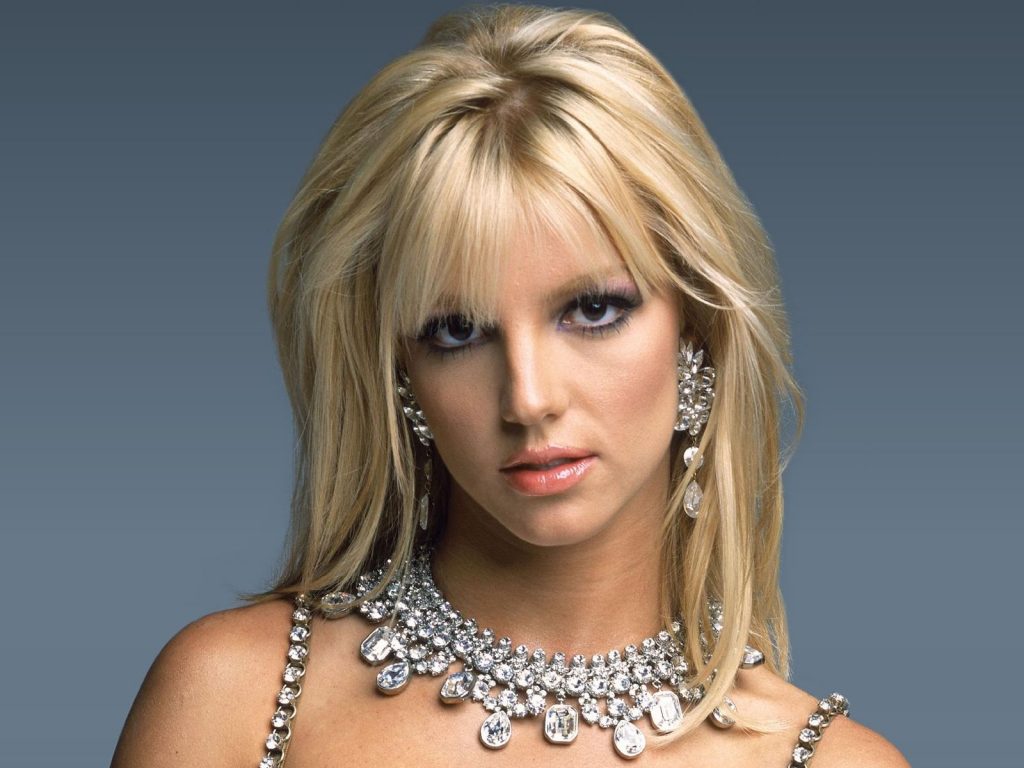

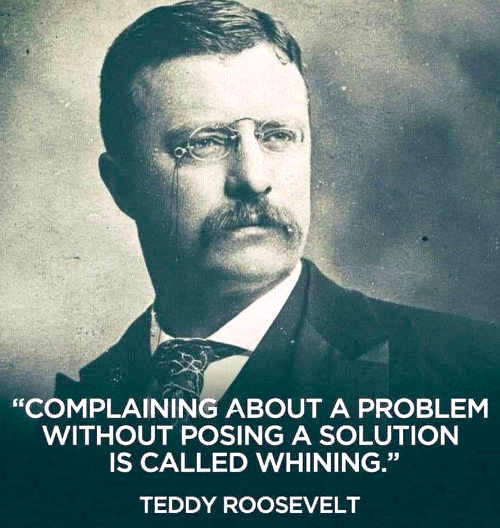

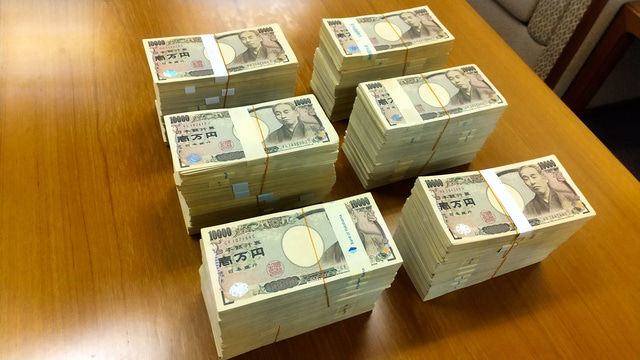

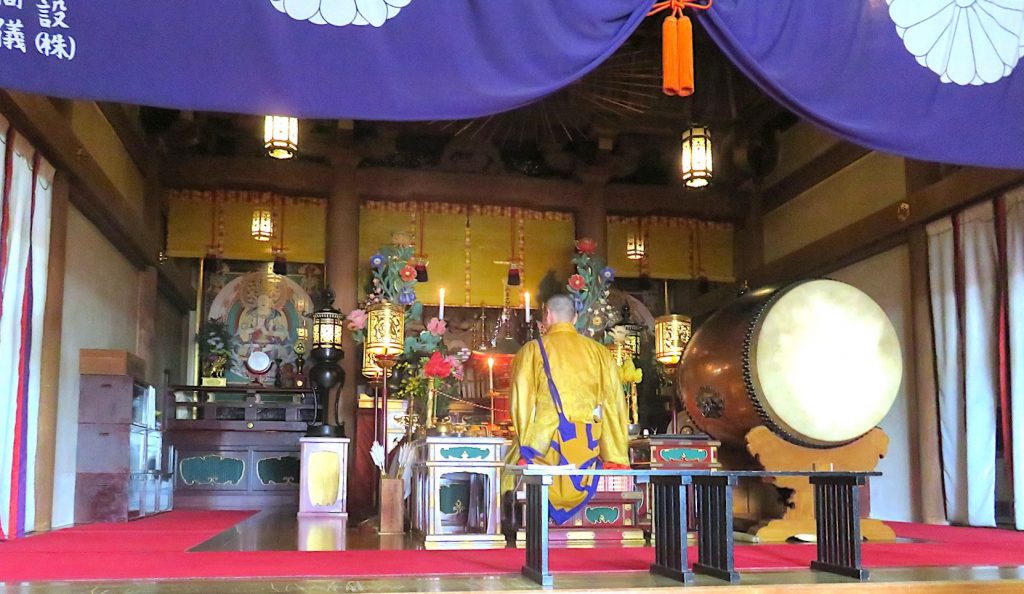





Life In Japan: A Generous Spirit
We have a nickname for our friend Keiko Iwashita. My wife and I call her “Bangladesh Lady”. There’s a very inspiring story behind this.
Keiko and her husband 岩下八司 (Hachiji) have an NPO (non-profit organization) called Polli Unnoyon Shonsta, which raises money to establish schools mainly in Bangladesh.
With 163 million people, Bangladesh is the eighth most populous country in the world, and one of the most densely populated. 98% of the people are Bengalis and over 90% are Muslims. The economy has recently been growing at an impressive rate but in terms of per capita GDP, it still ranks 164th in the world.
When the rich countries prefer to protect their privilege by committing billions of dollars to defending themselves against largely imagined foreign threats, competing in pursuit of infinite growth on a finite planet, much of the generated wealth funneled into the holdings of the already obscenely wealthy, it is only through individual efforts like that of Keiko and Hachiji that the enormous gap between rich and poor nations can be reduced. Maybe on paper it doesn’t look like much. But the difference they are making in the lives of those children who attend their schools is profound.
Charity begins at home? Actually, charity in this case begins at someone else’s homes, and those homes are 4,500 kilometers away — it’s 2,799 miles from Osaka to Dhaka.
Then again, Bangladesh is like a second home for this amazing couple.
People often say they want to “change the world”, do something positive, contribute to the betterment of humankind, but feel overwhelmed by all of the problems we face. Life is so complex and convoluted, usually it’s hard to know how and where to begin.
In a time, where 85 people have more wealth than the poorest 3.5 billion of the world’s population, there are more things to do in more locations than ever.
Keiko and Hachiji point the way with their generous spirit and inspiring example.